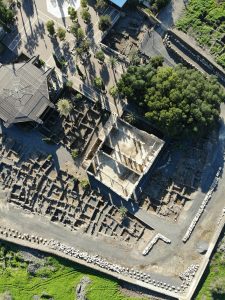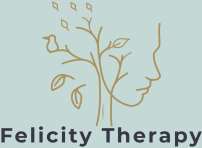The Festival of British Archaeology began on 15th July and goes on until the 30th. Archaeology has always fascinated me and when I was little I actually wanted to be an archaeologist; I even did a school project on it. I love that a little big of digging in the right places can unearth information about people and places of long ago and teach us something about how we got to where we are.
Some people are of the mind that the past is the past, what’s done is done and there’s no point in going over it because you can’t change it. Others would say that forgetting the past means we’re doomed to repeat its mistakes.

In therapy, the past can take on a new significance. There are all sorts of therapeutic approaches that place deep significance on a person’s past: attachment theory, Freudian psychoanalysis, cognitive analytic therapy, the psychodynamic approach… to name but a few. Other therapeutic approaches such as person-centred therapy and existential therapy focus on the present with an eye on past events and what they mean for present experiences; as the existentialist philosopher, Kierkegaard said, ‘Life can only be understood backwards; but it must be lived forwards.’ Some approaches such as cognitive behavioural therapy (CBT) and solution-focused therapy are even more grounded in the present and might not require reflecting on the past at all.
Life can only be understood backwards; but it must be lived forwards.
― Søren Kierkegaard
For some of us, the past can be a painful place to revisit and not always because of negative experiences - sometimes revisiting the joys of a happy past whilst living in a painful present can be just as difficult as looking back on a troubled history. When I was doing my counselling training, I remember how difficult it was to deal with the attachment theory content of the course having only recently lost my mother and dealing with my father’s dementia. It deepened my feelings of loss and being lost to myself. Fortunately I had a good therapist who helped me through it.
Of course, traumatic past events can hugely impact our present life and how we deal with situations, and it might even take decades for this to be fully realised. Something that happened to us a long time ago may have a lasting effect on our relationship with ourselves and our ability to form relationships with others. Even a traumatic birth event may have lasting effects with research showing that emotional, social and cognitive functions can all be affected by birth trauma. Other traumatic events may seem more obvious as being impactful but that doesn’t mean they are easily raised in therapy or even easily brought to mind - our defence mechanisms can include the repression of painful memories or the minimisation of significant events and it’s important to acknowledge that things that are going on for us in the present can affect the way we remember the past.
What's past is prologue.
― William Shakespeare, The Tempest
In his book, The Presenting Past, Michael Jacobs explores the importance of our personal histories and how they may play out in the therapy room. For some therapists, the significance of how past relationships are reflected in the therapeutic relationship is a key focus; ways in which we communicate in the therapy room can indicate the ways in which we relate to people in our lives outside of it. Therapists can use the information they are given about a client’s history in order to gain a deeper understanding of their present and to ‘interpret’ for a client what’s going on for them. Some clients need help to understand themselves and to be able to move on from a feeling of stuckness and to make the changes in their life that they have wanted to make or perhaps to be able to accept their past and move beyond it. For some clients, the ability of the therapist to bear witness to events that they (the client) had previously thought of as unspeakable and unbearable, can have a deeply healing effect.

Archaeologists need to take great care when they’re on a dig and similarly a therapist needs to tread carefully and respectfully when dealing with a client’s past material - after all they are the foundations upon which someone’s life has been built. It’s a huge responsibility and one which counsellors and psychotherapists need to hold in their awareness throughout their work. It’s one of the main reasons why I would love to see ‘counsellor’ and ‘psychotherapist’ become protected titles and for there to be some regulation in the profession.
So, what are your thoughts? Have you always been a ‘what’s done is done’ sort of person or do you find yourself constantly stuck on a loop of reflecting on things that happened in the past? Perhaps you have been able to move on or maybe you have been ignoring something that has led to unhealthy ways of coping or unhelpful behaviours. This might be a good time to do some ‘life archaeology’ and remember you don’t have to do it all on your own.

